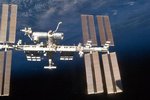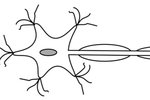Noa's Lab Diaries: Genes in Space mentors at work - Day 4
Guest post by Noa Popko
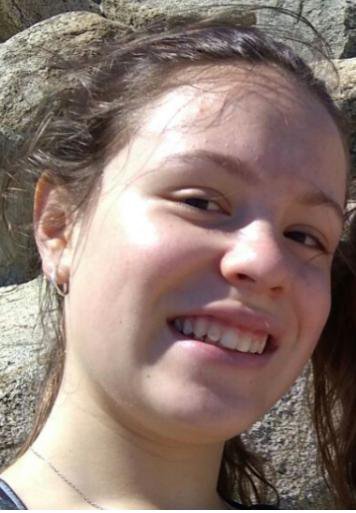
Hi, my name is Noa! I’m currently a sophomore at Commonwealth High School and I have a huge passion for genetics. Back in 2016 when I was in eighth grade, I participated in the Genes in Space competition and received one of the Junior Scientist Awards. Participating in the Genes in Space competition was one of the most exciting experiences for me to learn more about space research and put the knowledge I had into a proposal. I enjoyed participating in the competition so much, that I have come back to visit the Genes in Space mentors. For four days, I visited the mentors' labs and learned about their work and involvement with the Genes in Space program.
Day 4
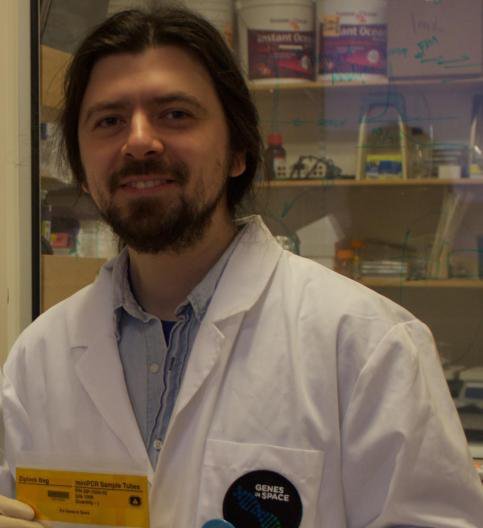
Today was my final day visiting the mentors. I visited Deniz Atabay from the Reddien lab at the Whitehead Institute of MIT. He does very interesting work with planarias, which are extraordinary flatworms that have the ability to regenerate any part of their body in a couple weeks, no matter where you cut it! Planaria can even be cut into many pieces, and each piece will regenerate into its own separate worm. They have only one opening in them, which is a tube-like mouth which sucks up any food around them. Additionally, they have a fully functioning nervous system that includes a brain as well as two comical eyes at the top. I found it fascinating that even if you cut a planaria straight down the middle, it will still regenerate the other side and new neurons would be able to connect to the original eye! Deniz allowed me to see some of the planaria that he grows in the lab and then I was able to cut some up and see them.
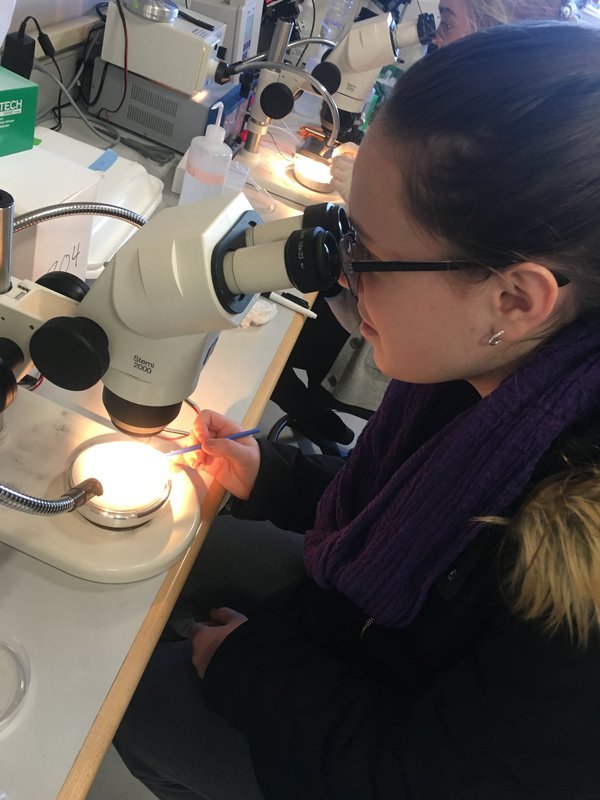
Noa looking at planaria in the Reddien lab.
Deniz has always been fascinated with science and especially the brain and development. He ended up joining the Reddien lab because it mixed his interest for regeneration and neuroscience. Deniz is also very fascinated by space and is very knowledgeable on the topic. His current work studying self-organization during regeneration has applications to space and allows him to have a taste of both fields!
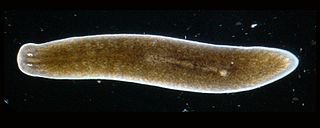
A planaria.
Deniz is on his fourth year as a Genes in Space mentor, and he keeps participating because he loves the unique program and the fact that he is able to participate in space related science. Performing experiments on the International Space Station is vital to understanding how basic systems here on earth work because we take a lot of what naturally happens here for granted. Deniz says that machines for genetic analysis and sequencing have already been proven to work aboard the ISS, and so the next step is for people like the Genes in Space contestants to create ideas to be tested up in space.
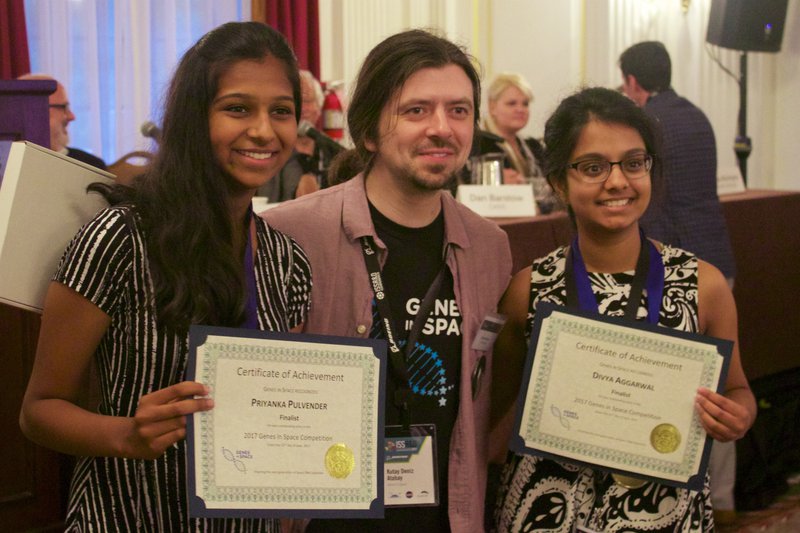
Deniz and mentees Priyanka and Divya at the 2017 ISS R&D Conference.
Deniz’s biggest goal is to be an astronaut one day, but he admits that it is super challenging to do. He told me that applying to astronaut training programs gives him a better chance of being an astronaut than never applying. That really resonated with me and got me thinking that if you have a dream, it is worthwhile to chase after it because you can achieve your goal, and if you don’t do anything about it, your dream will never be realized.
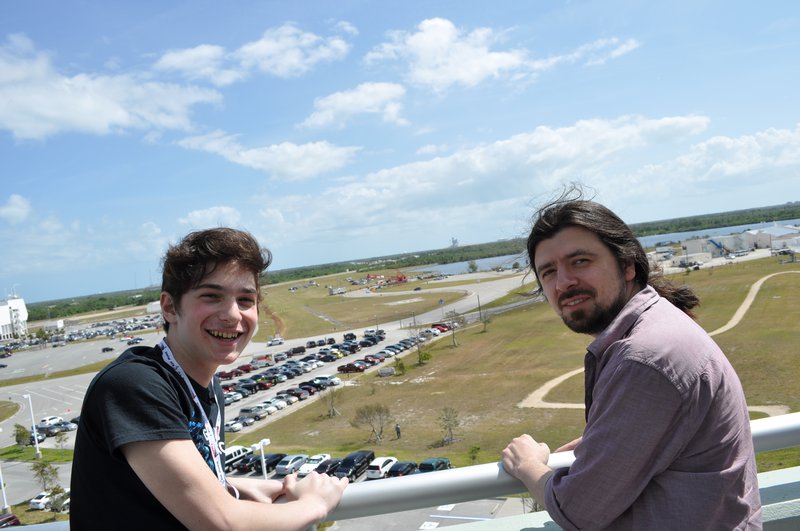
Deniz and mentee Julian at the launch of Julian's experiments to the International Space Station
Thanks for reading my lab diaries! I hope you learned a little about the fascinating work the Genes in Space mentors are doing here on Earth as well as in space. Keep chasing your dreams!

